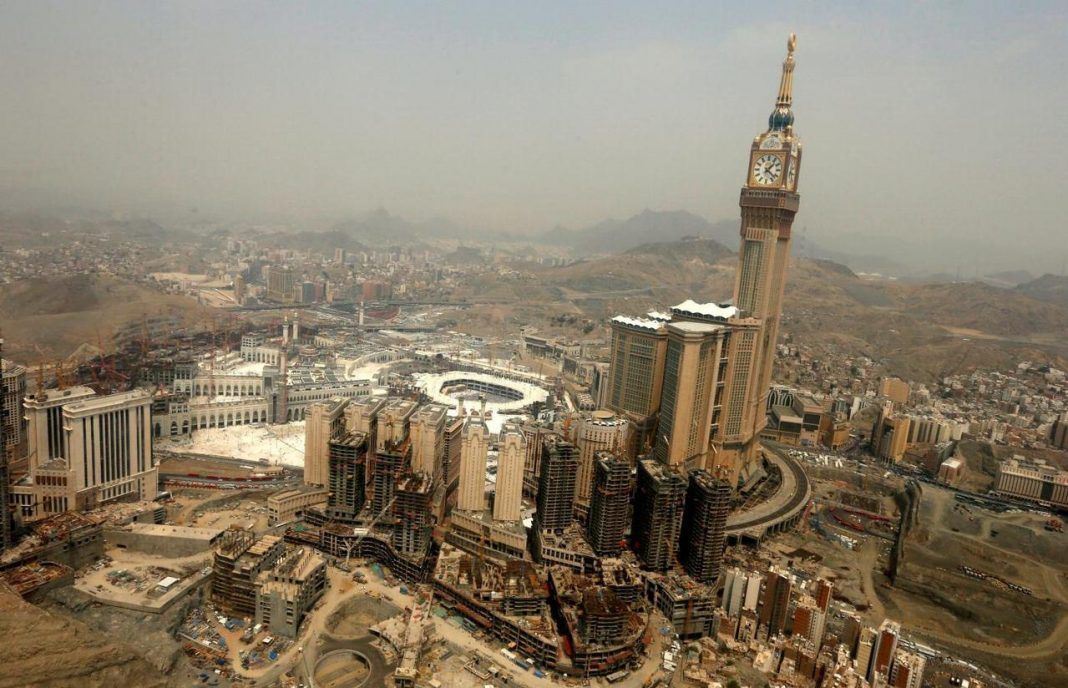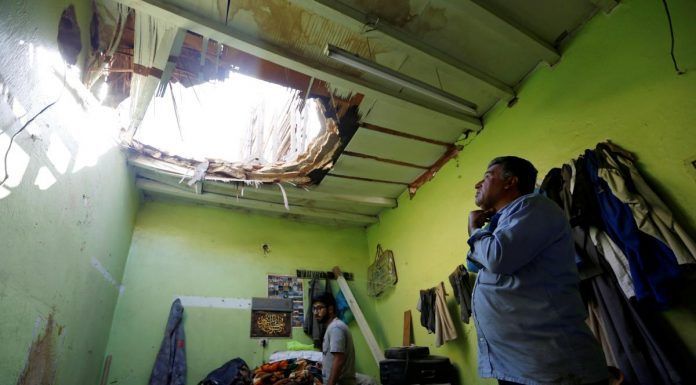JEDDAH, May 20 (Reuters) – Saudi Arabia said on Monday that it had intercepted two missiles in Mecca province fired by Yemen’s Iran-aligned Houthis, who earlier denied having targetted Islam’s holiest site.
The foiled strike comes at a time of heightened tensions between Tehran and Gulf Arab states and a roughly four-year conflict in Yemen largely seen as a proxy war between the two sides.
Saudi Arabia and the United Arab Emirates are leading a Western-backed coalition of Sunni Muslim states that intervened in Yemen in 2015 to try to restore the internationally recognised government ousted from power in Sanaa by the Houthis in late 2014.
A Saudi coalition spokesman said, “Royal Saudi Defence Forces spotted aerial targets flying through restricted areas in the provinces of Jeddah and Taif and dealt with them as required by the situation,” according to Saudi’s state news agency SPA.
In a tweet, Saudi Arabia’s embassy in Washington said the two missiles had been intercepted in Mecca province, which includes Jeddah and Taif.
Saudi-owned Al Arabiya TV, citing eyewitnesses, reported earlier on Monday that air defence forces had intercepted two ballistic missiles above the two western cities of Jeddah and Taif and said the first one had been directed towards Mecca, without providing evidence.
The Houthis denied that their missiles were targeting Mecca, a pilgrimage site roughly 70 km (40 miles)from Jeddah and 50 km (30 miles) from Taif. The group called the claim a tactic by Saudi Arabia to rally support for its war.
“The Saudi regime is trying, through these allegations, to rally support for its brutal aggression against our great Yemeni people,” Houthi military spokesman Yahya Sarea said on Facebook.
More than two million Muslims from around the world make the annual haj pilgrimage to Mecca. Many also visit the city during the holy month of Ramadan, which is underway.
Riyadh has accused Iran of ordering last week’s drone strikes on two oil pumping stations in the kingdom, for which the Houthis claimed responsibility. Tehran denied doing so.
Washington and Tehran have been sparring over sanctions and the U.S. military presence in the region, raising concerns about a potential conflict between the United States and Iran.
On Sunday, the Houthi-run SABA news agency said the group would start military operations against 300 vital military targets, including headquarters and facilities, in Saudi Arabia and the UAE and coalition targets inside Yemen.
Yemen’s conflict is widely seen in the region as a proxy war between Saudi Arabia and Iran, but the Houthis deny being Iranian puppets and say they are waging a revolution against corruption.
The strikes on Aramco pumping stations came two days after attacks on vessels, including two Saudi oil tankers, off the coast of the UAE, which no one has claimed responsibility for.
The UAE has not blamed anyone pending an investigation. Two U.S. government sources said last week that U.S. officials believed Iran encouraged the Houthis or Iraq-based Shi’ite Muslim militias to carry out the attacks.
The Houthis have repeatedly targeted Saudi cities and oil installations with missiles and drones, mostly n border areas. Twice, in 2016 and 2017, the coalition said the group had launched a missile towards Mecca, but the movement said it was targeting nearby airports.
(Reporting by Lisa Barrington and Asma Al Sharif in Dubai, Stephen Kalin in Jeddah Editing by Mark Heinrich and Jonathan Oatis)



